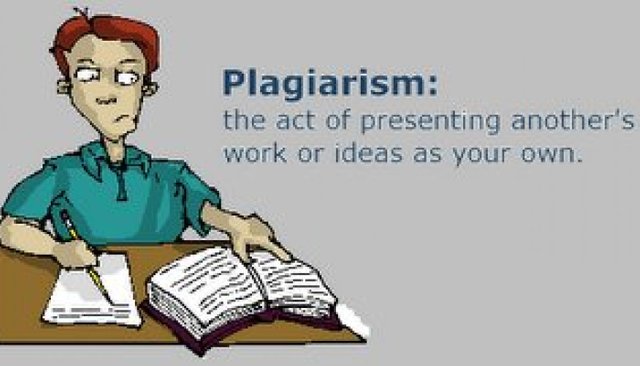Acheivement 3 || content ettiquette and Plagiarism
Hello great minds, hope you had a great day, I'm glad am writing another wonderful post which is the acheivement 3 post that is all about content ettiquette and Plagiarism. I hope you will enjoy it.
Plagiarism

Source
Plagiarism is the act of presenting someone's work or ideas or language or pattern as your own, without the consent or permission of the person.
It is like copying someone's hard work and taking the credit without reference to the original writer.
Types of Plagiarism
There are different types of Plagiarism depending on the course or institution, but for the course of writing we will look into the following;
Direct plagiarism
Self plagiarism
Complete plagiarism
Source-based plagiarism
Paraphrasive plagiarism
Direct Plagiarism
This is an act of copying a part of someone's work word to word, without any citation or referencing.
Self plagiarism
This is when the author of a work copies his or her own old works without any reference.
Complete Plagiarism
This is an act of plagiarism where one copies the entire work of someone, word to word. People normally confuse this aspect of plagiarism with direct plagiarism but it is worst than direct plagiarism. direct plagiarism is when you copied part of the author's work while complete plagiarism is copying the entire work. This is the worst form of plagiarism.
Source Based Plagiarism
This is an act where one makes research on sites that gives information or images concerning a topic and fails to reference the Source.
Paraphrasing plagiarism
Paraphrasing is simply an act of rewriting a text in your own words, when you rephrase one's words by making slight changes you
Have paraphrased. We à
So this plagiarism occurs when you copy someone's work and start doing slight changes which still means the same thing. This plagiarism is really common, it is done often.
Hi, @emmyrubby,
Your post has been supported by @heriadi from the Steem Greeter Team.